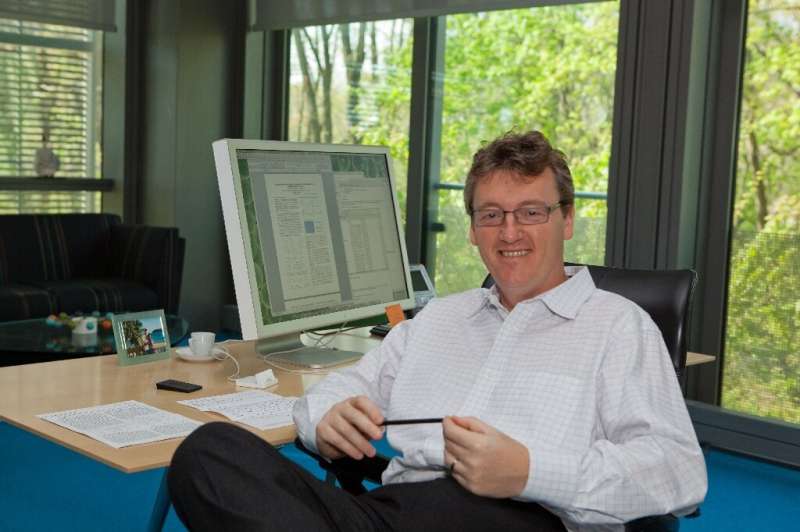Eco-friendly drug production Nobel winner's proudest achievement

Princeton professor David MacMillan on Wednesday won the Nobel Chemistry Prize for his work developing a new tool to scale up chemical reactions in an environmentally friendly way, known as "organocatalysis."
Here is a lightly edited interview that the Scotsman, who holds British and American citizenships, gave to AFP after the announcement.
Organic molecules
Q: Why is organocatalysis so different and important compared to the catalysts that came before, such as metals and enzymes?
A: Chemical reactions make all the things that are around us: medicine, materials, etc. And those reactions often require "catalysis."
To do catalysis, the world used lots of things that were toxic or created problems for the environment.
About 23 years ago, we thought "What if you could use the same types of molecules that you'd find in your body?"
In other words, organic molecules—because we know that those are fine in the environment, and they're happy to be around in our atmosphere.
Eureka
Q: Can you recall a specific eureka moment?
A: I was standing at a blackboard with a student, and I was showing them a reaction.
And I suddenly had this idea about how we could take this whole thing in a very different way using these organic molecules, so that was the first eureka moment.
The second moment was when another student actually tried the reaction and it worked. That was just the fantastic feeling at the time, much like I'm feeling right now.
When we published it, it took off like crazy and went quickly into the community and people started to adopt it very rapidly, which was also very exciting.
Metals worked
Q: Why were organic molecules neglected as tools to build molecules in the past?
A: It's a great question. I think it's because when people first tried using metals, they worked. And like many things in life when something works, people will go in that direction.
'The world is a very big place'
Q: The applications of your discovery are plentiful, but is there one that you're the most proud of?
A: People use these to make these medicines on a very, very large scale because the world is a very big place.
To be able to use these catalysts to do that, and at the same time be safe and environmentally fine is the part that I'm certainly most proud of.
Using light to break atoms
Q: You're currently a leader in "photoredox catalysis," using visible light to break and rejoin atomic bonds, one electron at a time. What excites you about that?
A: That work is now also being heavily employed by people making medicines and other materials.
We've just started taking that into biology, and we think that we can start to have new insights that will be really important for developing new medicines.
Undergrad at Glasgow
Q: How far does your love for chemistry go back?
A: It goes back to when I was an undergraduate at the University of Glasgow and I first made a molecule, and the professor I was working with told me that no one in the world had ever made that molecule before.
I was very young. I hardly knew what I was doing, and I'd already made a molecule. And I think where I'm lucky is I get to work with young people every day who have at least that level of excitement.
Co-winners
Q: Do you know your co-winner Benjamin List?
A: We published our papers separately, around about the same time, but we've known each other forever.
He was the person who texted me at 5:30 am this morning about the win, and I actually thought it was a joke.
I told him, "It's just a joke, people are joking," and I went back to sleep.
About 20 minutes later there was a lot of buzzing on my phone so I went to the New York Times front page and there was my picture.
I'm incredibly happy, but at the same time, I'm still trying to find my feet and understand what is happening today, it's all a whirlwind.
© 2021 AFP





















